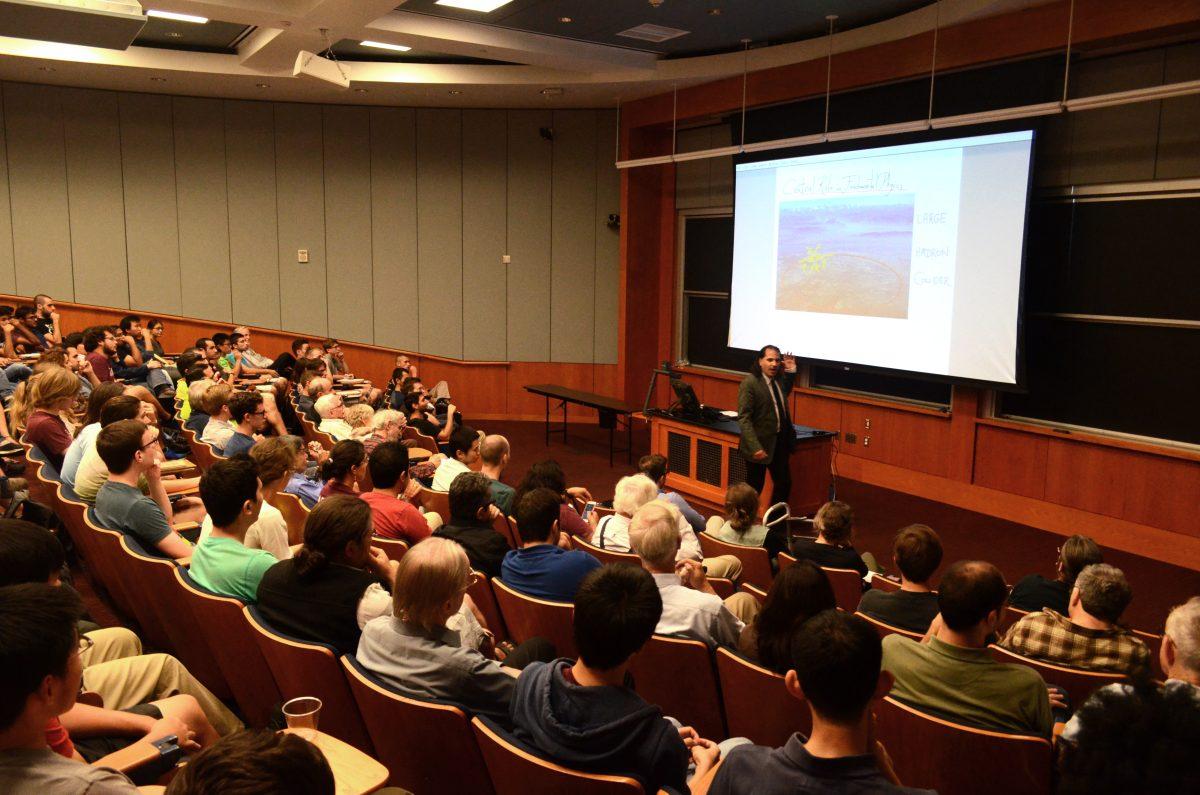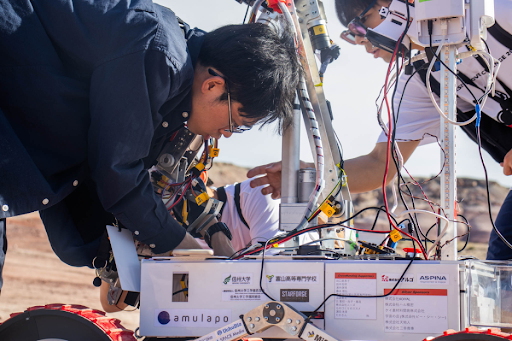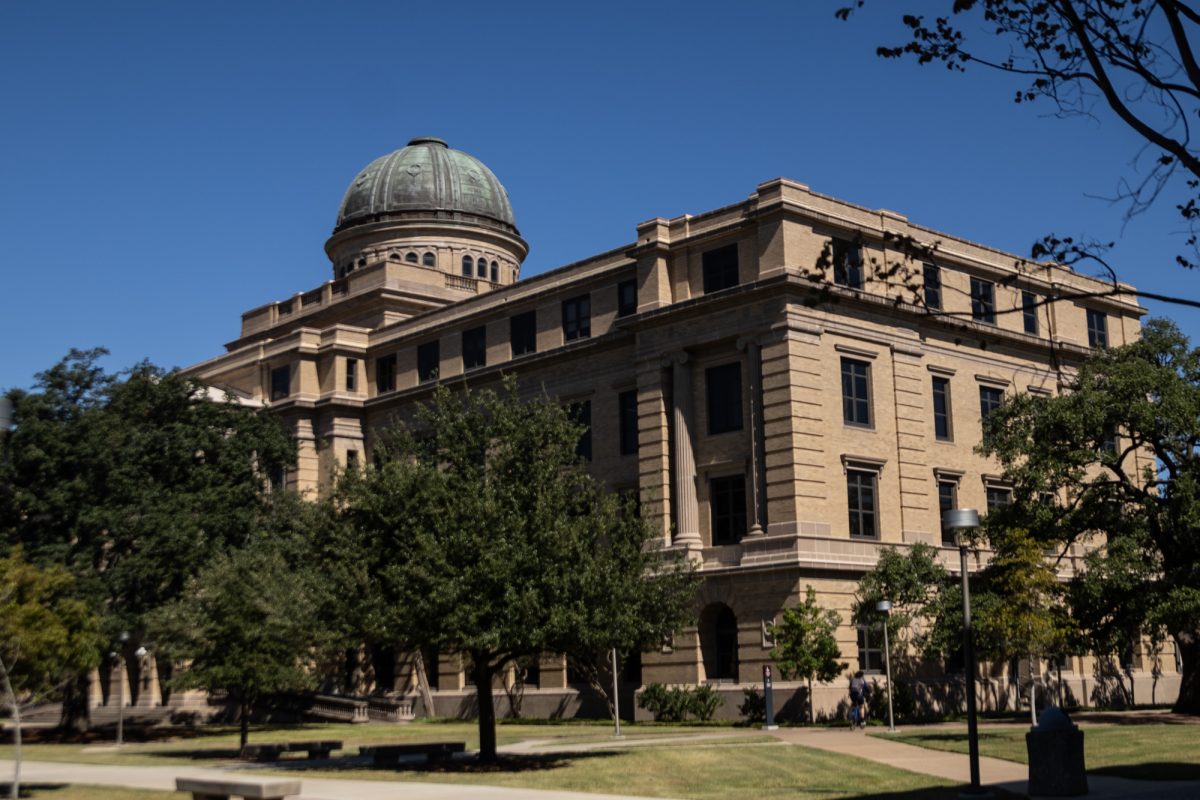Physicist Nima Arkani-Hamed discussed classical ideas of space-time and charts a path for the future in his lecture on Thurs. Sept 22.
The Department of Physics and Astronomy hosted a seminar by leading contemporary physicist Arkani-Hamed from the Institute of Advanced study at Princeton University. Arkani-Hamed is a highly cited scholar in theoretical physics with accolades including the inaugural $3 Million Fundamental physics prize and has been featured in the popular documentary ‘Particle Fever’ about the discovery of the Higgs Boson at the CERN supercollider in Europe. Arkani-Hamed presented the ‘Physics and mathematics for the end of spacetime.’
Spacetime is any mathematical model used in physics to explain physical phenomenas of the universe by combining space and time in one continuum. Quantum mechanics is used to explain the behaviour of subatomic particles. Both these principles have defined the era of modern physics. These principles however present a challenge for the physicists of the 21st century.
“Both of these ideas, the principles of spacetime and quantum mechanics have to modified or extended in some way,” Arkani-Hamed said.”Because of the existence of gravity and quantum mechanics, we believe that the concept of spacetime is doomed and there are many simple thought experiments that tell us that space time is doomed.”
Arkani-Hamed discussed the physics of the big bang and the black hole, challenging the classical beliefs. Using thought experiments, Arkani-Hamed brought out the challenges with existing physics of measurements.
“Finite systems have an intrinsic imprecision on anything that they can observe,” Arkani-Hamed said. “When you have quantum mechanics and gravity there is no measurement you can do in a fixed sized room that can return an observable, that ‘s very interesting”.
Arkani-Hamed discussed the changes in the worldview of physics from deterministic physics to quantum physics. Arkani-Hamed spoke about the reformulation of physics and demonstrated how physics has a way of rewarding ‘morally correct behavior’.
“It is a profound thing about physics, we still do not understand it till today,” Arkani-Hamed said. “Why the same laws have so many ways of formulation, that seem so radically different from each other; philosophically only one way of thinking is correctly suited to taking the jump to the next level.”
The need for a second picture of the physics which is more relaxed about spacetime and quantum mechanics was the highlight of the next part of the talk. This included a brief review of particle scattering diagrams pioneered by Richard Feynman and recent work by the Arkani-Hamed group which led to the discovery of the ‘amplituhedron’ — which is the theoretical model that many people refer to as the 21st Century hydrogen atom.
As a leading contemporary physicist Arkani-Hamed said that the two biggest conceptual challenges physics faced in the 21st century are that the notion of space time has to be replaced by something else with a possible extension to the notion of quantum mechanics, and answering the question of ‘Why the universe is big.’
“The two biggest experimental discoveries of the 20 years was the fact that the Universe is accelerating and the discovery of the Higgs particle,” Arkani-Hamed said. “Both this discovery are very very strange from any conventional picture we have…Both of these discoveries pin point towards something about spacetime and quantum mechanics we do not understand”
Aritra Saha, first year doctoral student in physics, was drawn to the lecture by Arkani-Hamed’s popularity and an exciting title.
“The ideas presented in the lecture was something new for me,” said Saha. “The way he is doing things and calculating stuffs is completely new. The way he is interpreting quantum mechanics and space time to emerge side by side is something very fascinating.”
Michelle Olsen, a doctoral student in chemical engineering, heard about the seminar from her friends and the wide applicability of Arkani-Hamed’s work provoked her interest.
“There is still a lot to know about quantum mechanics,” Olsen said. “Many different fields can apply their knowledge and many different minds are needed for different perspectives.”
Leading Princeton physicist Nima Arkani-Hamed visits Aggieland
September 25, 2016
0
Donate to The Battalion
$1065
$5000
Contributed
Our Goal
Your donation will support the student journalists of Texas A&M University - College Station. Your contribution will allow us to purchase equipment and cover our annual website hosting costs, in addition to paying freelance staffers for their work, travel costs for coverage and more!
More to Discover










